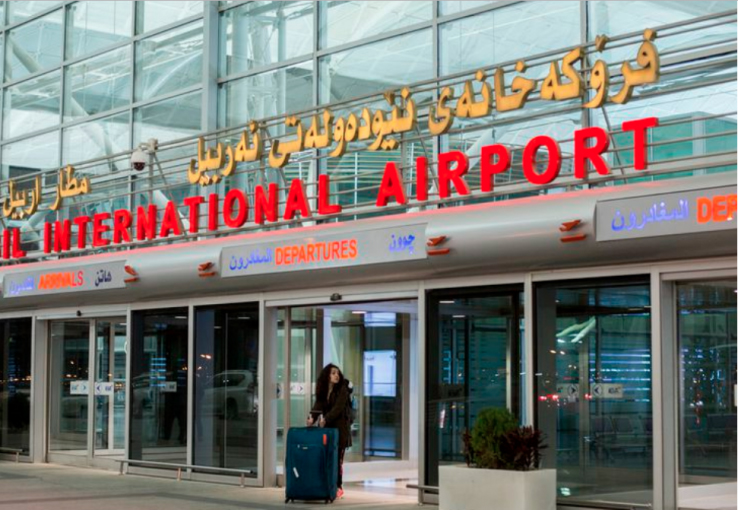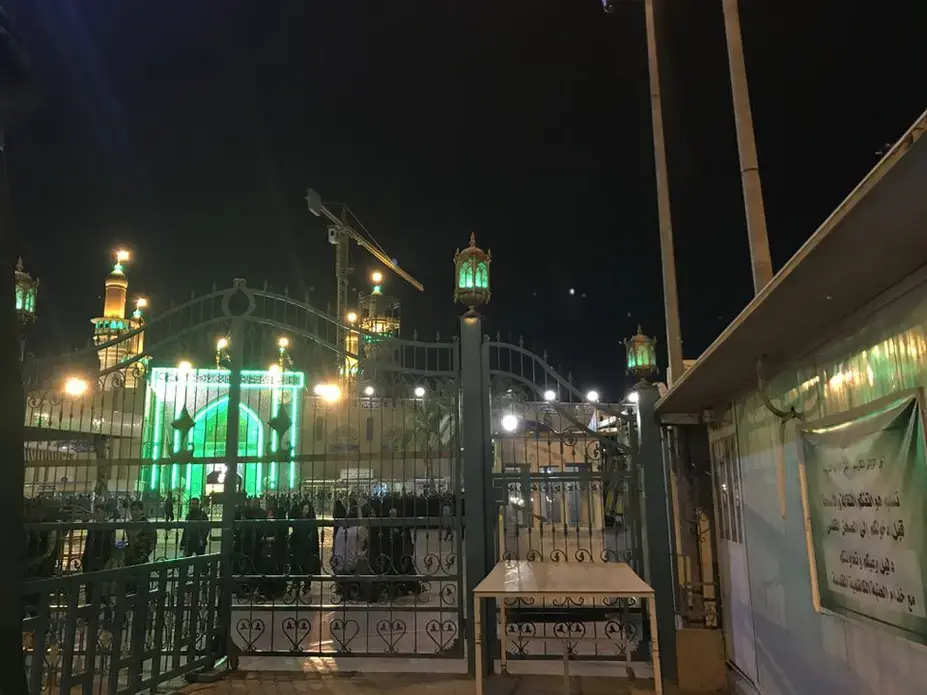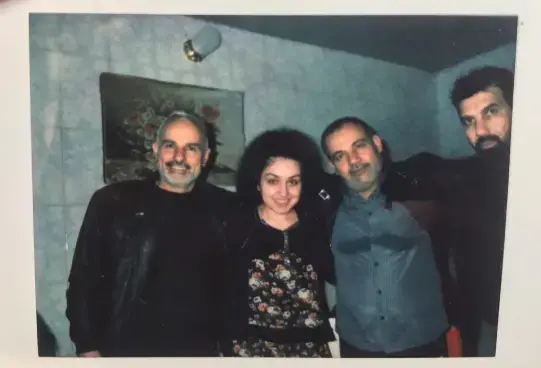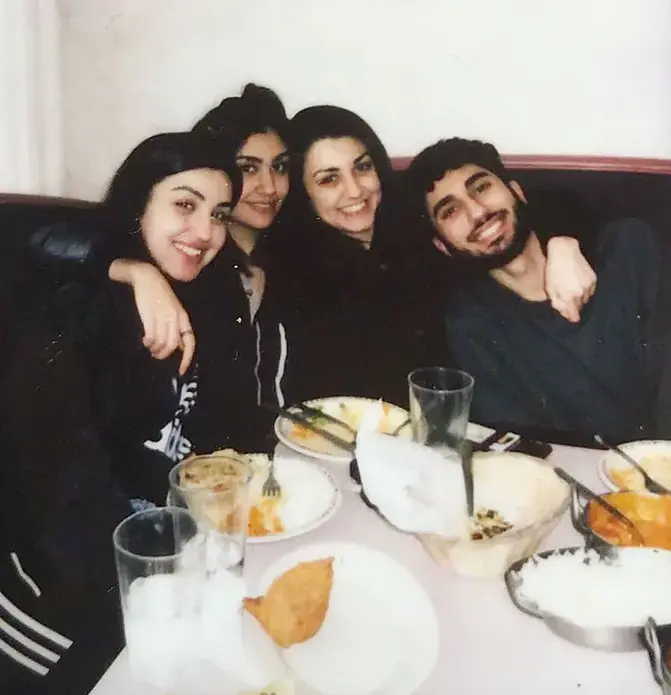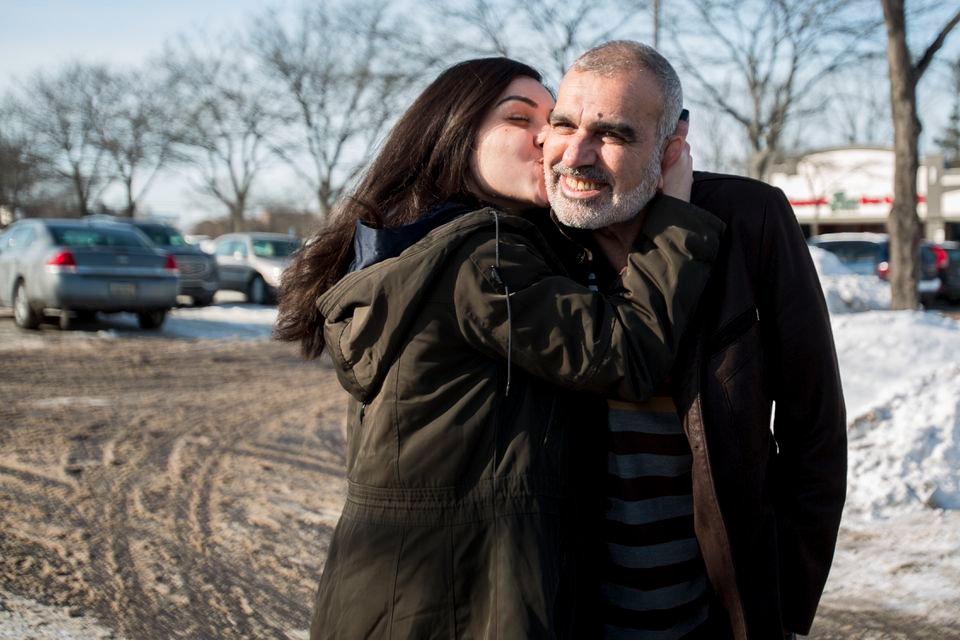
My last night in Baghdad was spent visiting Imam Musa al-Kadhim, the Imam who predicted my birth.
Baba credits Imam Musa for surviving Saddam's regime.
Once Baba was in a hospital that was being searched for revolutionaries. During the search, gunfire broke out. Baba asked Imam Musa for help and ran out a back door.
Baba managed to get a couple of blocks away before being stopped by a solider and asked for identification. Baba again started asking Imam Musa for help and within minutes, a woman and her family passed by.
The woman hassled the solider, complaining of the food storage and her starving children. While the soldier was distracted by the woman, Baba took off and ran until he reached the house of someone he knew.
These were moments in which Baba escaped death. Who knows if it was sheer chance or Imam Musa's help.
Visiting Imam Musa was drastically different than visiting Imam Ali, mostly because it was far less crowded.
Four tall minarets squared around two large, golden Dubbas, or domes, housed Imam Musa's tomb. Mirrored mosaic walls lined the tomb's room. Samira gave me a green piece of cloth.
"Say a dua and tie a knot so it comes true," Samira said.
After paying my respects to Imam Musa and reading duas for my family's health and prosperity, I sat down with Samira near the tomb. Samira began to tell me about the Imam.
Imam Musa was Imam Ali's grandson, a renowned scholar who was imprisoned throughout most his life. Imam Musa was known to be kind, forgiving and generous to everyone, even those who hurt him. I believe his most redeeming qualities were not passing judgment, living simply and generously. He died a prisoner of Sindi ibn Shahak in Baghdad.
Despite being imprisoned, Imam Musa's freedom reigned through his influential teachings, which still touch millions of people today. I admire Imam Musa's resiliency despite being entrapped.
Religion, for so many people, generates hope in some of the darkest situations. I am an observer of the Quran's power.
Islam has guided my family through troubled pasts, and it's currently guiding them through an uncertain future.
Allah Is Love
Baba pours water from a bottle and into his hands before wiping his forearms, face and the top of his thinning, peppered hair, then down to his nose.
It's time for afternoon prayer.
At 53 years old, he still recites five prayers a day.
Kneeling in a green gown, with his eyes closed, he prayed on the hospital bed of the radiology intervention room.
It's been months since I'd flown back to Michigan from Iraq.
In April, Baba got news from Rasul in Iraq. Their brother Yousef had stage four mesothelioma. I'd met Yousef in Iraq. He's the spitting image of Baba, just shorter. Yousef is a blacksmith by trade and has six children. He's got a calm demeanor and crosses his arms while he stands. His high cheekbones, dark eyebrows and whitening hair are like Baba's.
I was eating dinner with Baba when he told me he'd be going to Iraq for six months to take care of Yousef.
But Baba's trip to Iraq lasted only two days.
His first day there, Baba asked Yousef of the symptoms he'd felt leading up to his diagnosis. Listening, Baba realized he'd been feeling the same way the last few months.
To be cautious, Baba decided to get an X-ray of his lungs.
There was three times more fluid in Baba's left lung than Yousef's.
Baba flew back to Michigan the next day. Baba's lung had been drained and a biopsy showed Baba, too, had stage four mesothelioma.
"I visited Imam Musa," Baba told me as he got ready for bed one night. "I felt so good."
On the drive to work, the hospital, or Lansing, I keep reflecting on my time in Iraq.
An Iraqi's strength can't be measured because it is continually tested. In every conversation I had, in every set of Iraqi eyes I peered into, strength radiated from within.
After so many wars tore Iraq's walls and security down, Iraqis are rebuilding their country.
Through centuries of oppression and radicalization, Iraqi women are changing the female narrative in the Middle East.
Though misinterpretations of the Quran reinforced and encouraged intolerance, Iraqi men are breaking down the barriers their ancestors built to free their daughters.
The images of Iraq, the moments I shared with my family, are felt every day.
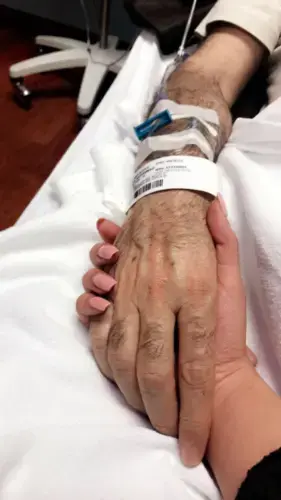
As I sat next to Baba's bed while he slept, I wondered if any of this progress would've been possible without revolutionaries like him.
Yes, the revolution opened Iraq's doors and made it more vulnerable to invaders and erratic beliefs. But it also unleashed a wave of people ready to rebuild their country on land where some of history's greatest civilizations flourished.
Life is erratic. Our darkest moments are often the most memorable. Hidden deep within the uncertainty is a lesson. Rather than fear what I cannot predict, I'm embracing every moment I am present for.
As a revolutionary, all Baba wanted was democracy.
As a journalist, all I want is to ensure the people's right to a democracy.
As simple as these statements may be, it took two decades, a trip halfway around the world and nearly a month spent in Iraq to remind myself of who I am.
My name is Zahra Mohammad Ahmad. I was born to an Iraqi-Irani revolutionary named Mohammad Ahmad Sibte and an Iraqi embodiment of courage named Lamiya Adil Mahdi. The blood running through my veins can be traced back to the cradle of civilization.
I am a proud Iraqi.
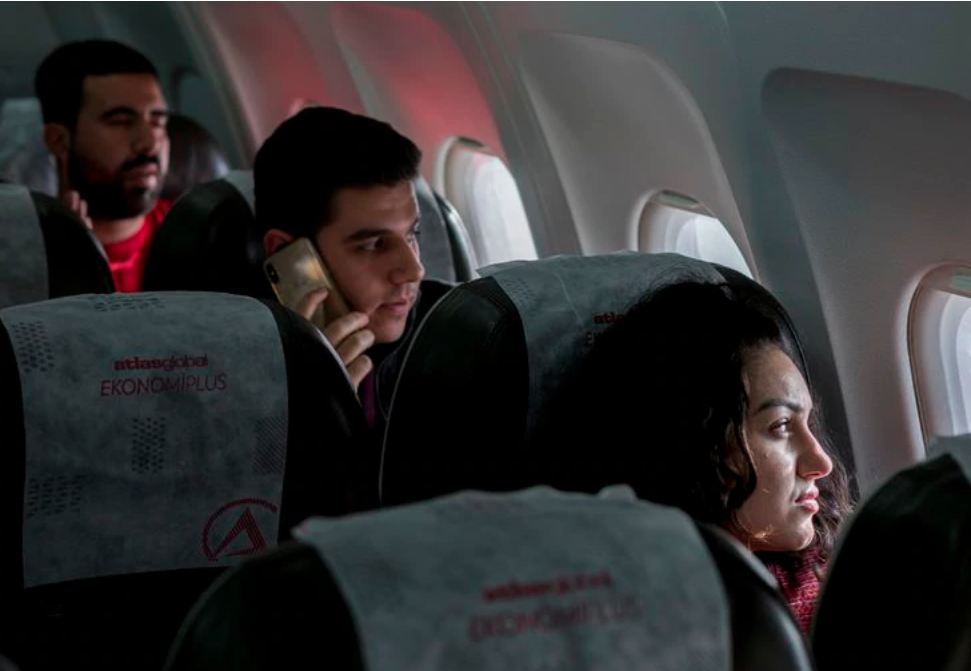
Education Resource
Meet the Journalist: Zahra Ahmad
In February 2019, Zahra Ahmad traveled back to her homeland, Iraq, to reunite with her father's...



